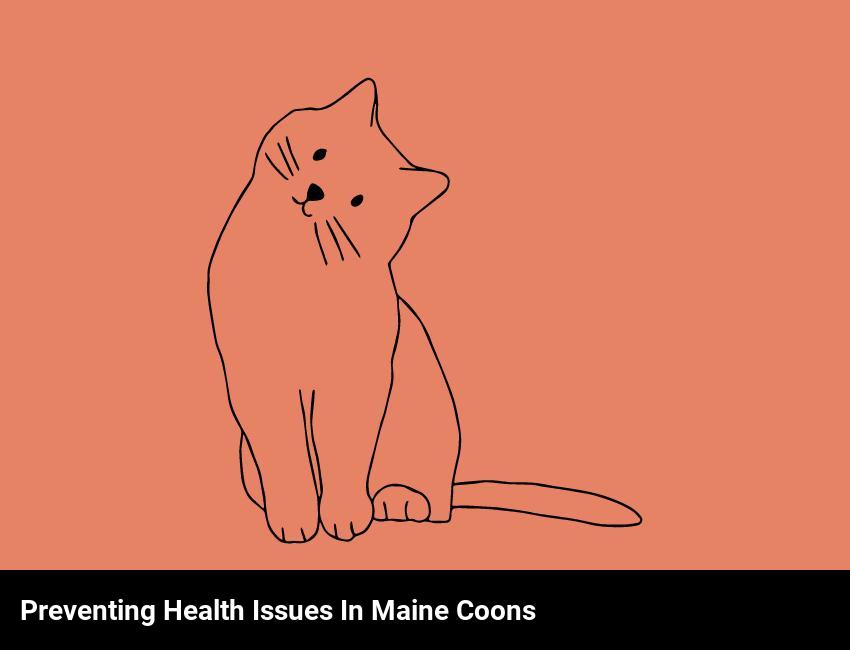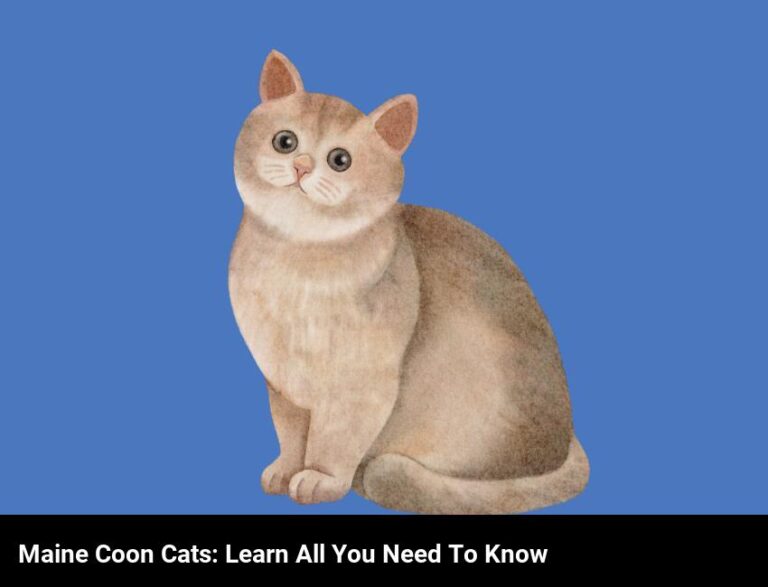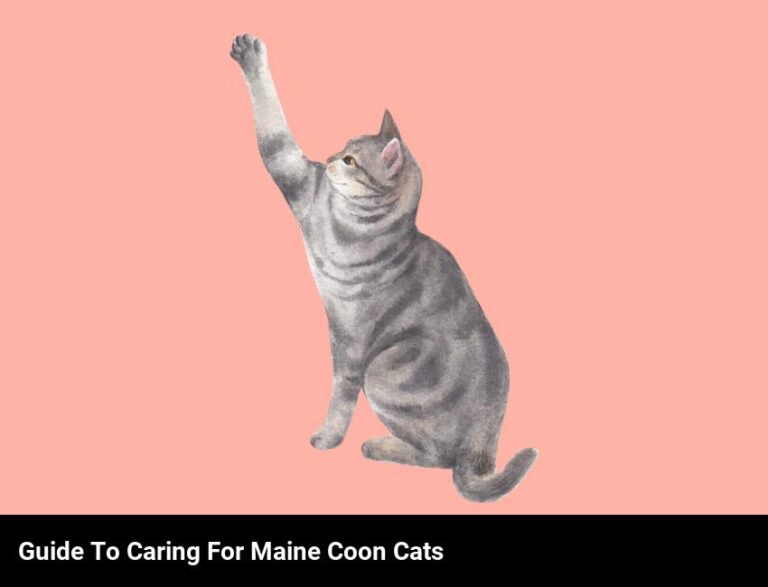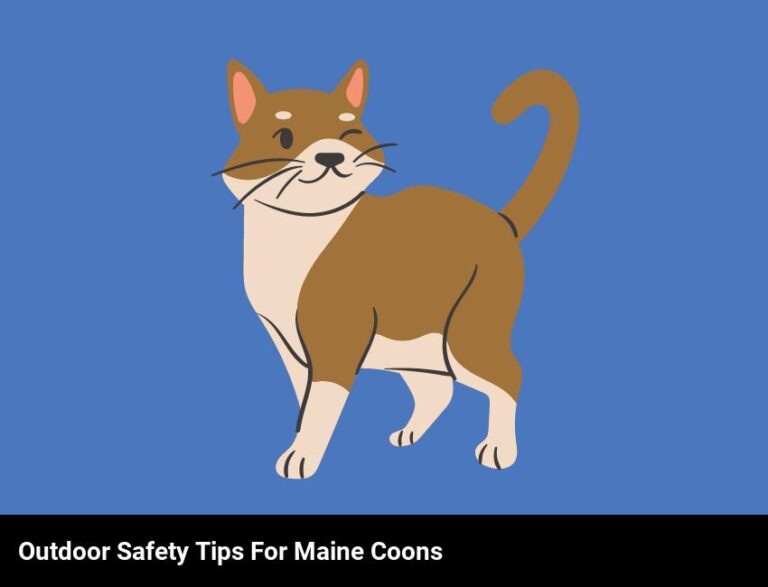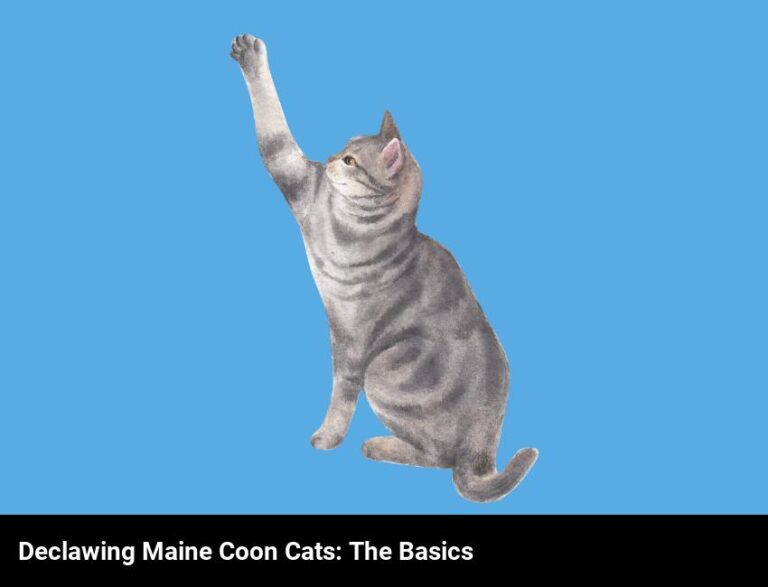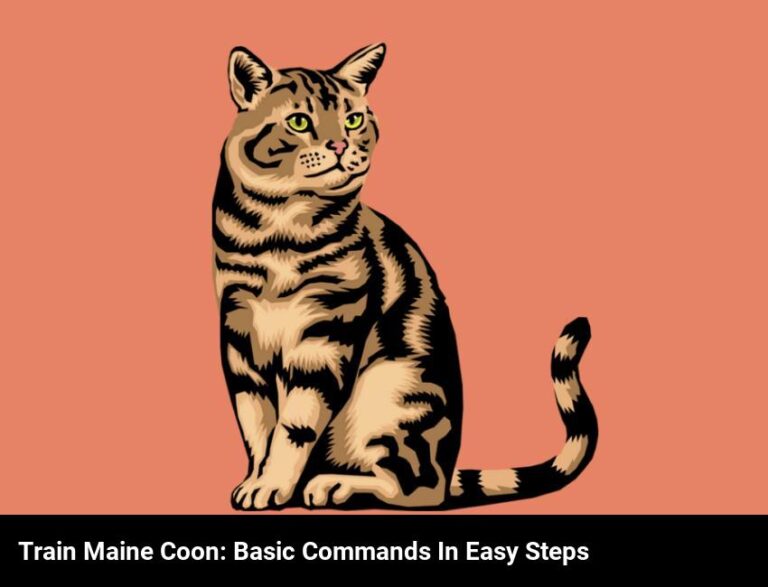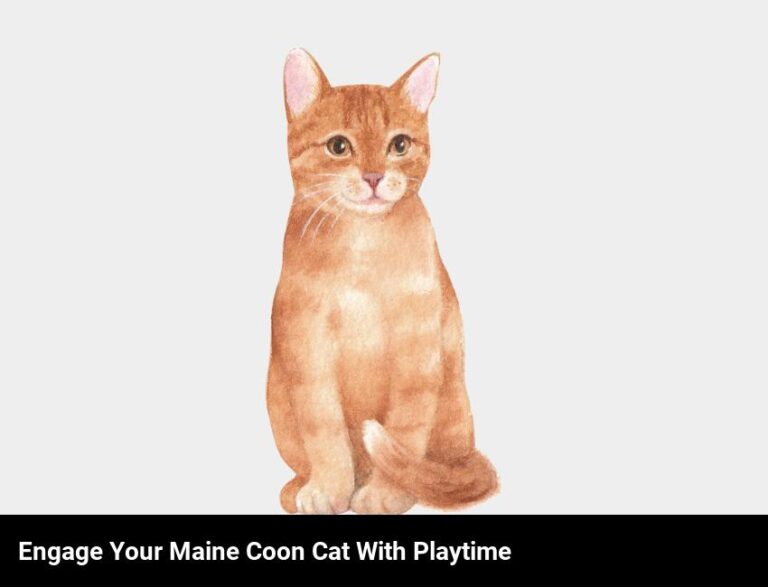Preventing Common Health Issues In Maine Coons
Maine Coons can be susceptible to certain health issues, but there are steps you can take to help prevent them. Feed a high-quality diet, provide regular veterinary checkups and provide ample exercise to keep them healthy and strong.
As a proud owner of a Maine Coon, I understand the importance of protecting my furry friend against common health issues. As one of the most popular and beloved cat breeds in the world, Maine Coons are well-known for their intelligence, independence, and playful nature. But unfortunately, like many other breeds, Maine Coons are prone to a variety of health issues.
To keep my Maine Coon healthy, I know I need to be proactive in preventing these common health problems from occurring. That’s why I’m always researching how to keep my cat’s environment safe and healthy, what preventive measures I can take, and what warning signs to look out for. I also understand the role a balanced diet plays in preventing health issues in Maine Coons.
In this blog post, I’m going to share my insights on how to prevent common health issues in Maine Coons. I’ll discuss what health issues are most common in Maine Coons, what preventive measures you can take to make sure your Maine Coon is healthy, what warning signs you need to watch out for, and how to keep your cat’s environment safe and healthy. I’ll also talk about the role diet plays in keeping your Maine Coon happy and healthy.
What health issues are most common in maine coons?
Maine Coons are generally considered healthy cats, but like all cats, they can suffer from certain health issues. The most common health concerns in Maine Coons include hip dysplasia, genetic heart defects, ringworm, and obesity.
Hip dysplasia is a condition in which the hip joint fails to develop properly, resulting in pain and lameness. It’s more common in large breeds, and Maine Coons are particularly prone to it. To prevent hip dysplasia, regular exercise is important.
Genetic heart defects are also common in Maine Coons. These conditions can cause murmurs, abnormal heart rhythms, and other symptoms. To prevent genetic heart defects, you should have your cat’s heart checked every year by a veterinarian.
Ringworm is a fungal infection that can affect Maine Coons. It causes patchy hair loss and scaly skin. The best way to prevent ringworm is to keep your cat’s coat clean and groomed.
Finally, Maine Coons can struggle with obesity if they don’t get enough exercise and eat a balanced diet. To prevent obesity, make sure your cat gets plenty of exercise and feed them healthy food.
What preventive measures can you take to ensure your maine coon is healthy?
Taking the necessary preventive steps is essential for keeping your Maine Coon healthy and happy. Here are some tips on how you can help ensure your cat’s long-term wellbeing:
First, make sure your Maine Coon gets regular vet checkups. While yearly checkups are recommended for most cats, Maine Coons are known to be especially prone to certain health conditions, so it’s important to keep an eye on them. Also, be sure to keep their vaccinations up to date and ask your vet for advice about any dietary or lifestyle changes you can make to improve your cat’s health.
In addition, you should be sure to groom your Maine Coon regularly. Maine Coons have long, thick coats that require regular brushing and combing. If you don’t have time to do it yourself, consider taking your cat to a professional groomer. Not only will it help keep their coat looking and feeling good, but it will also help prevent tangles and mats.
Finally, make sure to provide your Maine Coon with plenty of toys and activities. Maine Coons are active cats that need daily physical and mental stimulation in order to stay healthy and happy. Providing them with interactive toys, scratching posts, and plenty of playtime can help keep them active and alert.
By following these tips, you can help ensure that your Maine Coon stays healthy and happy for years to come.
What should you look for to identify any potential health issues in your maine coon?
When looking for potential health issues in your Maine Coon, you should pay close attention to their diet, environment, and behavior.
First, make sure your Maine Coon has a balanced diet full of healthy proteins and fats. Look for signs of malnutrition, such as thinning fur, or an unhealthy coat. You should also make sure they are getting plenty of exercise and activity, as this helps to keep their weight healthy.
Second, check their environment and make sure they are not exposed to any chemicals or other potentially harmful substances. Make sure they are not kept in a small, cramped space, as this can cause physical and mental stress.
Finally, note their behavior and make sure they are not displaying any signs of distress or discomfort. Be on the lookout for changes in their eating habits, sleeping patterns, or energy levels.
By keeping an eye on these potential health issues, you can help your Maine Coon stay healthy and happy for years to come.
How can you recognize the signs of common health issues in maine coons?
Recognizing the signs of common health issues in Maine Coons is an important part of preventative care. You can look out for a few key indicators that may suggest your cat is having health issues. In order to help your Maine Coon stay healthy and active, watch for the following signs:
- Change in appetite. If your Maine Coon’s appetite significantly changes, it may be a sign of an underlying health issue.
- Weight loss. Unexplained or sudden weight loss may be a sign of health issues.
- Reduced activity. If your Maine Coon is less active than usual, take it to the vet to rule out any medical issues.
- Unusual behaviors. If you notice your Maine Coon acting differently or displaying signs of distress, it may be a sign of an underlying health issue.
- Changes in coat. If your Maine Coon’s coat appears dull or patchy, it could be a sign of a nutritional deficiency or skin infection.
- Discharge from the eyes or nose. If your Maine Coon is showing signs of discharge from the eyes or nose, it may be a sign of an infection or allergy.
It’s important to stay alert for any signs of health issues in your Maine Coon. If you notice any of the signs listed above, take your cat to the vet for a checkup. Early detection and treatment of health issues can help ensure your Maine Coon stays healthy and active for years to come.
How can you keep your maine coon’s environment safe and healthy?
Keeping your Maine Coon’s environment safe and healthy is an essential part of providing them with a long, happy, and healthy life. Here are some tips to get you started.
First and foremost, make sure their living space is clean and free of any potential hazards or toxins. Vacuum regularly and keep the area free of any chemicals, like cleaning products or air fresheners.
Make sure they are getting enough exercise, both indoors and outdoors. Use a scratching post or other outlets to give them plenty of physical activity.
Give them plenty of mental stimulation and enrichment. Provide them with toys and activities to keep them entertained and engaged.
Give them plenty of love and attention. Spend time with them everyday and make sure they feel secure and loved.
Keep them up-to-date on their vaccinations and regular vet visits. Doing this will help to ensure that any potential health issues are caught and treated early.
By following these simple tips, you can help keep your Maine Coon’s environment safe and healthy.
What role does diet play in preventing common health issues in maine coons?
It’s no surprise that diet plays a very important role in preventing common health issues in Maine Coons. As with any other pet, it’s important to provide your Maine Coon with a balanced and nutritious diet. This will ensure your cat’s overall health and well-being, as well as promote longevity.
The most important element of a diet for Maine Coons is ample amounts of protein. These cats have a tendency to be quite energetic and active, so a high-protein diet will provide them with the energy they need to stay healthy and happy. It’s also important to provide your cat with healthy fats, such as omega-3 fatty acids, which can help keep their coat healthy and shiny.
In addition to protein and healthy fats, it’s important to provide your Maine Coon with a variety of other essential nutrients. This includes vitamins, minerals, and antioxidants, which all help to support their overall health. It’s also important to make sure their diet provides the right amount of fiber, as fiber helps to keep them regular and promote healthy digestion.
Finally, when it comes to feeding your Maine Coon, it’s important to provide them with enough water. Dehydration can lead to a variety of health issues, so make sure that your cat always has access to fresh, clean water.
Overall, diet plays a very important role in preventing common health issues in Maine Coons. Providing your cat with a balanced and nutritious diet will ensure their overall health and well-being, as well as promote longevity.
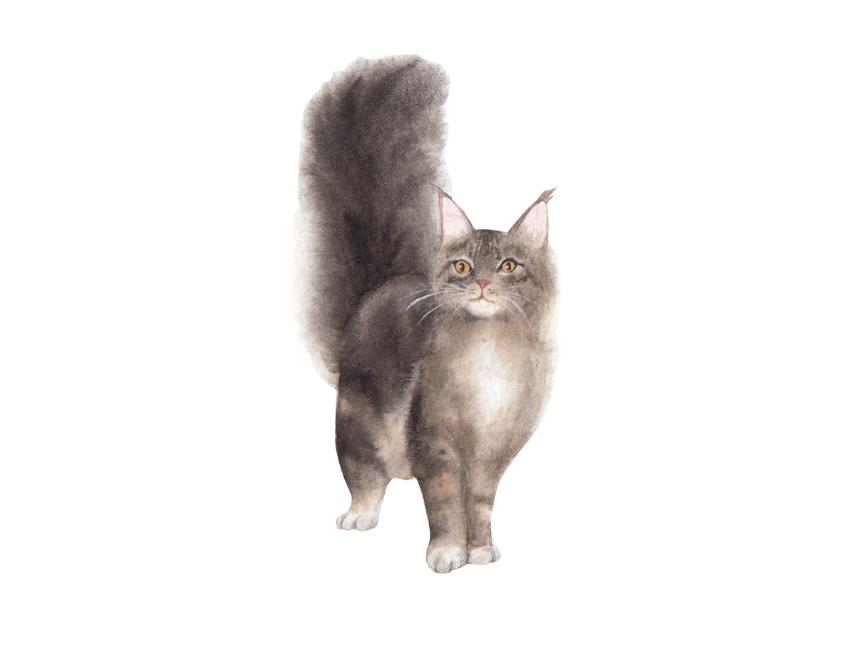
Frequently Asked Questions
What environmental factors should be considered when caring for a maine coon?
When caring for a Maine Coon, you should consider environmental factors such as temperature, humidity, and lighting. Make sure that your cat has a comfortable space to rest and play, and that the temperature is not too hot or too cold. Also, ensure that the humidity levels are not too high or too low, as this can make them uncomfortable. Lastly, consider the lighting in the room, making sure that it is not too bright or too dark.
What vaccinations are necessary for maine coons to remain healthy?
For Maine Coons to remain healthy, it is important to get them vaccinated against feline distemper, rhinotracheitis, calicivirus, rabies, and feline leukemia virus. Additionally, keeping their vaccinations up to date is important for their continued good health.
Are there any specific dietary needs for maine coons that should be taken into account?
Yes, there are certain dietary needs that should be taken into account when caring for a Maine Coon. Cats require a diet high in protein and fat, and Maine Coons have a tendency to become overweight so a balanced diet is important. Make sure that you provide your Maine Coon with a high-quality, species-appropriate diet, and supplement their diet with vitamins and minerals as needed. Additionally, provide plenty of fresh, clean water every day.
What lifestyle changes can you make to reduce the risk of developing health problems in a maine coon?
Making lifestyle changes can help reduce the risk of developing health problems in a Maine Coon. You should feed your pet a balanced diet, make sure they get enough exercise and provide regular vet check-ups. Avoid extreme temperature changes and keep your cat’s environment clean and free of fleas and ticks. If you have multiple cats, make sure they are spayed or neutered to reduce the risk of them developing certain health conditions.

